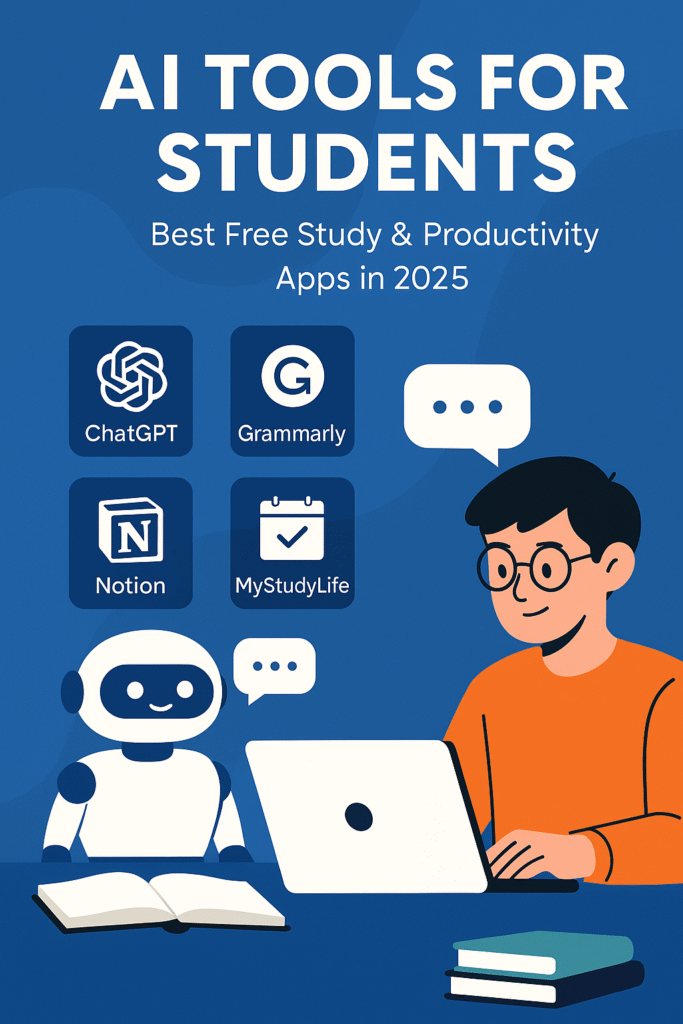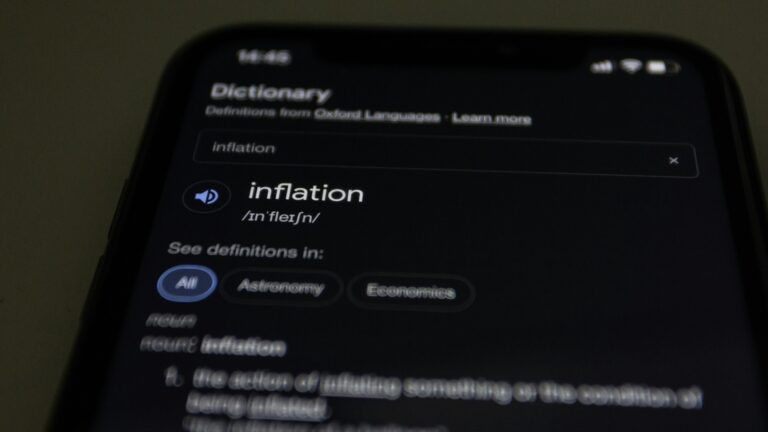
Artificial Intelligence (AI) has revolutionized education, and by mid-2025, it has become an essential companion for students at every academic level. From streamlining research to improving writing, managing schedules, and solving complex equations, AI tools now serve as powerful learning partners. But with growing usage also come new concerns—about ethics, academic integrity, and responsible use.
This guide will help you discover the most effective AI tools for students in 2025, understand what you get for free (and what you don’t), and explore how to use them ethically and effectively.
The Rise of AI in Education: 2025 Snapshot
In 2025, GenAI tools are being deeply integrated into educational systems worldwide. Universities, schools, and even online platforms now use AI to personalize instruction, support special needs, and enhance student productivity. With ChatGPT, Perplexity AI, and other generative tools growing in power, students can now:
- Summarize complex articles in seconds
- Generate flashcards from notes
- Get real-time writing feedback
- Transcribe and summarize lectures
- Solve step-by-step math problems
However, these benefits come with the responsibility of ethical use. Educators emphasize learning enhancement—not shortcuts or plagiarism.
Top AI Tools for Students in 2025 (Free & Freemium Models)
Disclaimer: Most tools listed below offer free versions, but many operate on a freemium model with premium features locked behind a paywall.
1. ChatGPT (OpenAI)
- Free Plan: Access to GPT-3.5 with basic features.
- Paid Plan (ChatGPT Plus): Access GPT-4o, image generation (DALL-E), voice mode, and deep research tools.
- Best For: Writing help, coding assistance, brainstorming, summarizing text, math explanations.
- 2025 Highlights: Supports custom GPTs (e.g., for biology, law), integrates with Google Drive, Dropbox, and can analyze data tables. A record mode helps transcribe lectures.
2. Grammarly
- Free Plan: Basic grammar and spelling checks.
- Premium Plan: Includes tone detection, plagiarism checker, full-sentence rewrites, and clarity improvement.
- Best For: Essay writing, emails, resumes, and academic papers.
- 2025 Highlights: Works like a full writing coach using AI-driven suggestions.
3. Notion AI
- Free Plan: Limited AI generations per month.
- Paid Plan: Unlimited use within the Notion workspace.
- Best For: Taking notes, creating study guides, summarizing long lectures, generating content from outlines.
- 2025 Highlights: Automates meeting minutes, creates to-do lists from notes, and assists in collaborative projects.
4. Quillbot
- Free Plan: Paraphrasing with standard mode, grammar checker.
- Premium Plan: Advanced rephrasing modes, summarizer, plagiarism detection, co-writing features.
- Best For: Rewriting content, summarizing articles, checking grammar.
5. Perplexity AI
- Free Plan: Powerful LLM with citation-backed answers.
- Pro Plan: GPT-4 access, file upload support, image input.
- Best For: Researching academic questions, finding verified sources, summarizing documents.
- 2025 Highlights: Academic-friendly due to its citation-first approach.
6. Photomath
- Free Plan: Step-by-step solutions for math problems.
- Premium Plan: Detailed explanations and deeper problem solving.
- Best For: High school and college-level math (algebra, calculus, etc.).
7. MyStudyLife
- Free App: Fully free with no AI features.
- Best For: Task management, class timetables, and reminders.
- Note: It is not a generative AI tool but still valuable for student productivity.
Other Prominent AI Tools Worth Exploring
– Fireflies.ai / Otter.ai: Transcribe and summarize lectures or meetings—useful for students who miss classes.
– Anki: Spaced repetition flashcards—ideal for memorization. Several AI integrations now automate flashcard creation.
– Tome / Gamma: Create beautiful, AI-generated presentations from text or notes.
– GitHub Copilot: For STEM or coding students—acts like an AI coding mentor.
– Wolfram Alpha: Solves complex math, science, and logic problems—uses AI computation, not a generative model.
Ethical Use of AI Tools: Learn, Don’t Cheat
AI is a powerful assistant—but not a replacement for thinking. In 2025, academic institutions are implementing AI-use policies and detection tools. Here’s how students can stay responsible:
- Avoid plagiarism: Do not copy AI-generated content blindly.
- Cite sources: If you use AI for research or content generation, disclose it appropriately.
- Use AI as a tutor: Ask it to explain concepts, not write assignments.
- Respect guidelines: Every school has different policies—check before using AI on exams or essays.
Responsible AI use helps you build knowledge while avoiding academic violations.
Conclusion: AI as Your Learning Partner
AI tools in 2025 are smarter, faster, and more helpful than ever. They offer enormous benefits when used to enhance—not replace—your academic journey. Whether it’s organizing notes, getting grammar help, or understanding tough math problems, these tools can empower you to study smarter.
Explore them. Experiment responsibly. And remember—AI is here to support your learning, not do it for you.
Sources & References
- OpenAI Official Blog: https://openai.com/blog
- Grammarly Blog: https://www.grammarly.com/blog/
- Notion Updates: https://www.notion.so/blog
- Quillbot Features: https://quillbot.com
- Perplexity AI: https://www.perplexity.ai
- Photomath: https://photomath.com
- MyStudyLife: https://www.mystudylife.com
About the Author
Pulsewire Editorial Team
The Pulsewire Editorial Team specializes in educational technology, AI-integrated learning, and student productivity solutions. Our mission is to empower learners with responsible, high-quality insights into digital tools and innovation.
This article is intended for informational purposes only. Students should consult their academic institutions for policies related to AI tool usage.









